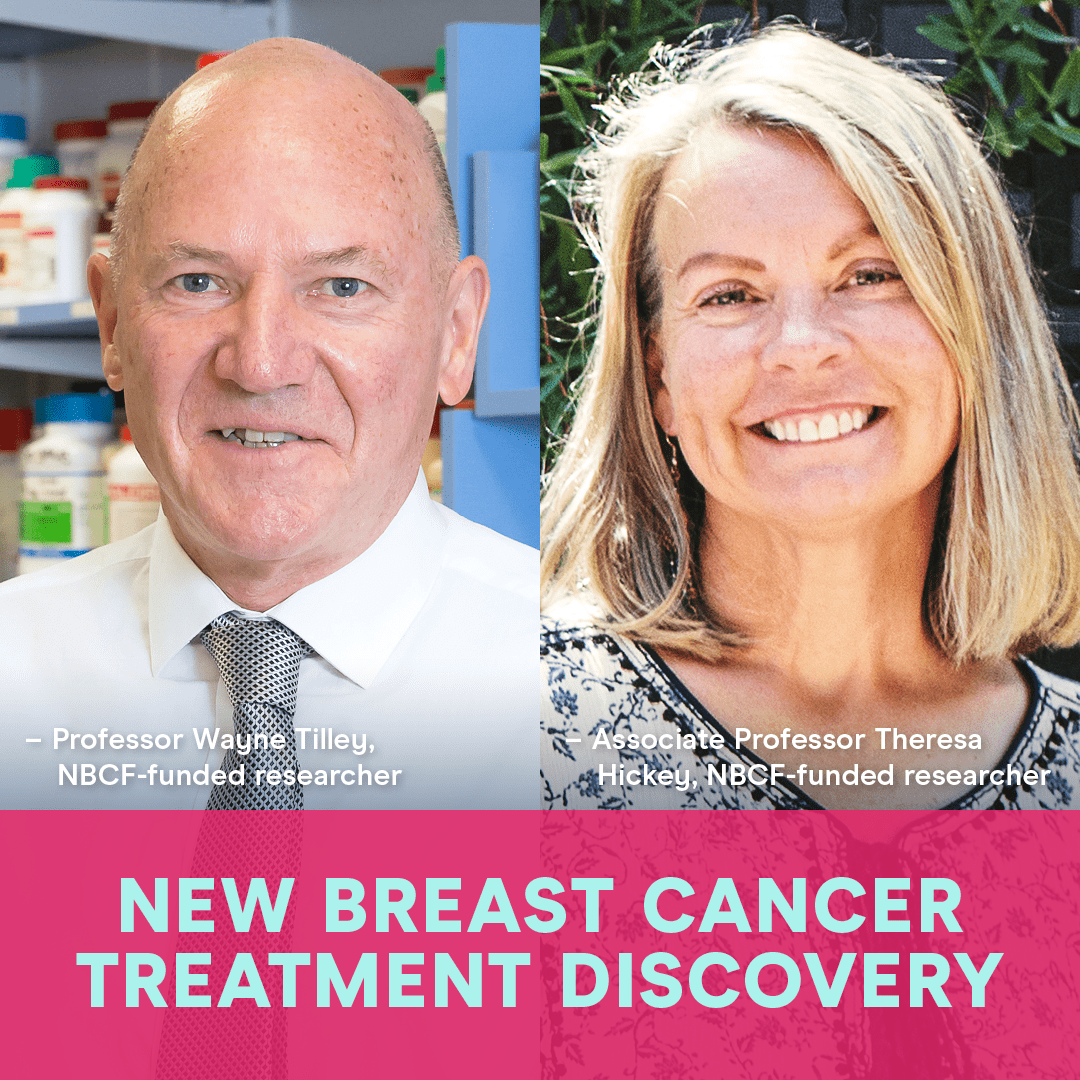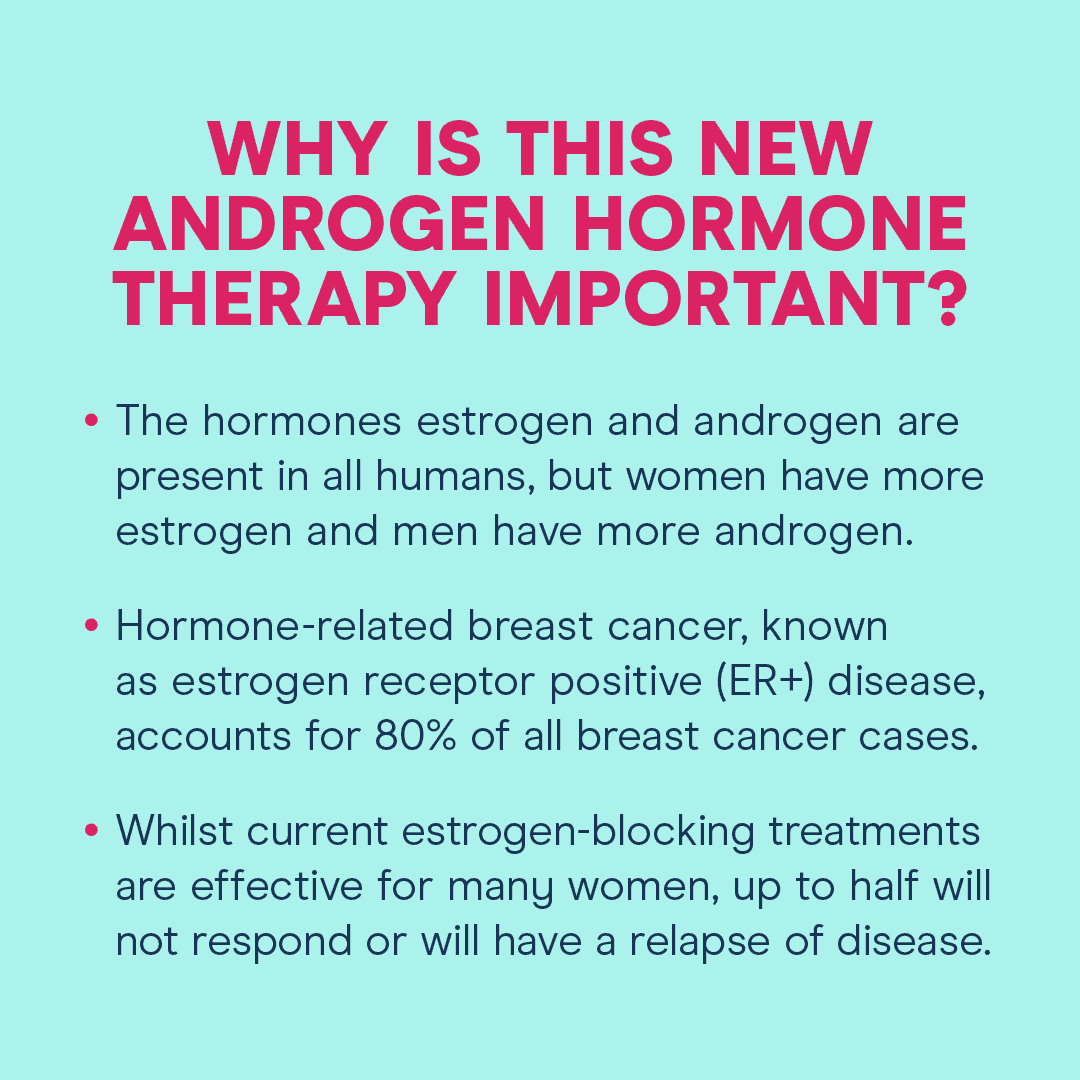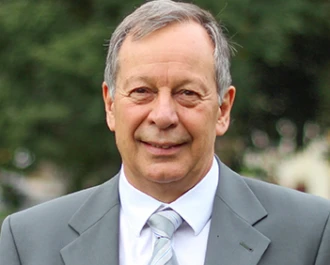
A NBCF-funded study has provided new evidence that androgen hormone therapy can be an effective treatment for breast cancer. The findings, published this week in the prestigious journal Nature Medicine, helps settle a debate that has raged for many years.
The hormones estrogen and androgen are present in all humans, but women have more estrogen and men have more androgen. Hormone-related breast cancer, known as estrogen receptor positive (ER+) disease, accounts for up to 70% of all breast cancer cases. In ER+ disease, cancer cells grow in response to estrogen. Hence, treatment involves blocking estrogen binding to estrogen receptors or inhibiting its production to “starve” the tumours of the hormone.
Whilst estrogen receptor inhibiting / blocking treatments are effective for many women, up to 30% will not respond or will have a relapse of disease. As such, other treatment options are urgently required. Historically, androgenic drugs were used to treat breast cancer, but were discontinued due to their masculinizing side effects and the advent of anti-estrogenic drugs (e.g. Tamoxifen). More recently, conflicting studies about androgen receptor activity in breast cancer, led to confusion about whether to therapeutically stimulate or inhibit it to treat women with this disease.
This new study, led by Professor Wayne Tilley and Associate Professor Theresa Hickey (University of Adelaide), now clearly demonstrates that androgen receptor activation has potent anti-tumour activity. This was seen even in tumour samples that were resistant to estrogen receptor inhibitors, which are the current gold standard of care.
Professor Tilley explained that the results show that androgenic drugs are very effective either alone or in combination with standard-of-care treatments.
“We provide compelling new experimental evidence that androgen receptor stimulating drugs can be more effective than existing (e.g. Tamoxifen) or new (e.g. Palbociclib) standard-of-care treatments,” he said. “In the case of the latter, it can be combined to enhance growth inhibition.”
Another of the study’s authors, Professor Elgene Lim (Garvan Institute), said: “The new insights from this study should clarify the widespread confusion over the role of the androgen receptor in ER+ breast cancer. Given the efficacy of this treatment strategy at multiple stages of disease in our study, we hope to translate these findings into clinical trials as a new class of endocrine therapy for breast cancer.”
“This work has immediate implications for women with metastatic estrogen receptor positive breast cancer, including those resistant to current forms of endocrine therapy,’’ said Associate Professor Theresa Hickey.
An international Phase 3 study of a selective androgen receptor activating drug called Enobosarm in patients with androgen and estrogen receptor positive metastatic breast cancer who failed endocrine therapy and a CDK 4/6 inhibitor will start in the second quarter of 2021. This drug does not have masculinizing effects in women. Androgenic drugs will now also be investigated for breast cancer prevention and treatment of other disorders driven by estrogen where both estrogen and androgen receptors are present.
This study was proudly funded by NBCF, the National Health and Medical Research Council of Australia, Cancer Australia, Movember, The Hospital Research Foundation and the US Department of Defense Breast Cancer Research Program. A video summary is also available: https://youtu.be/NYalzv4C35U
More News Articles
View all News




